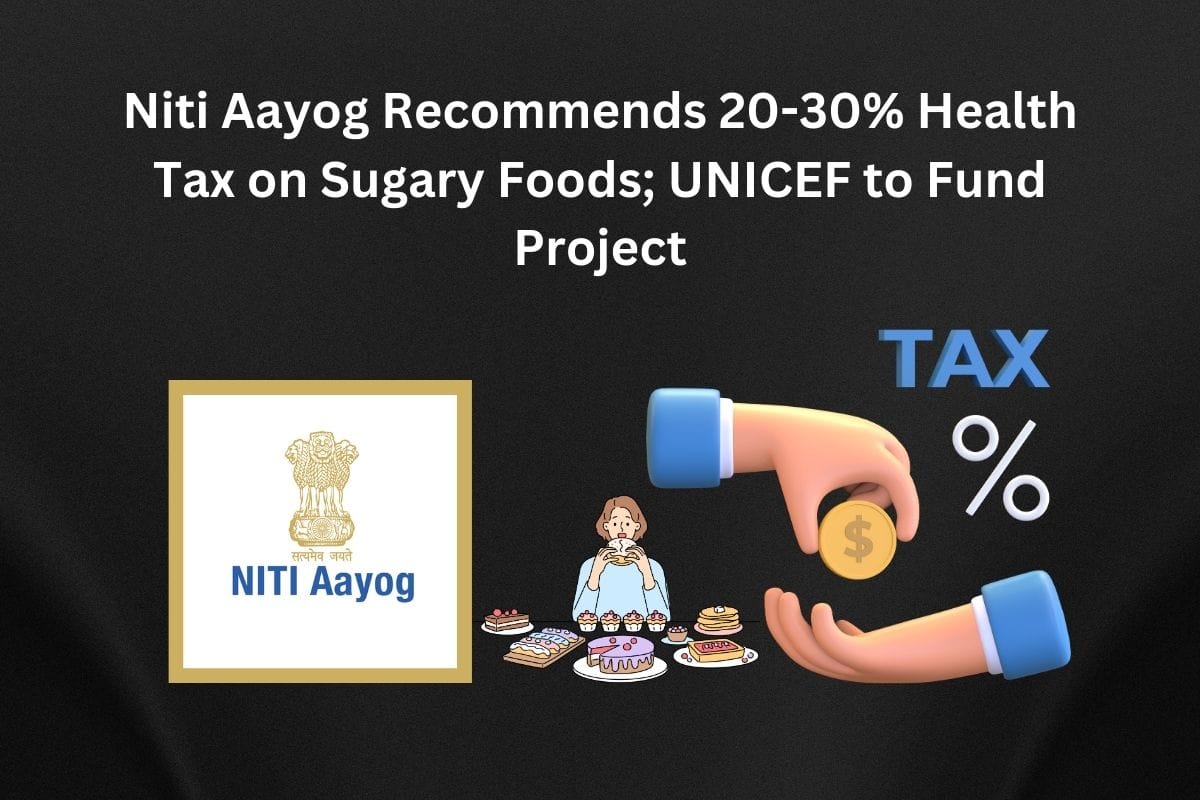
In a significant move to promote healthier dietary choices, Niti Aayog has recommended the imposition of a 20-30% health tax on foods high in sugar, fat, oil, and sugar-sweetened beverages. This project, backed by UNICEF funding, aims to address the adverse impact of excessive sugar, salt, sweetened beverages, and oily foods on public health. The proposed tax, in addition to the existing GST, is anticipated to result in a substantial reduction in the demand for bulk sugar purchases.
About Niti Aayog:
Niti Aayog, or the National Institution for Transforming India, is a policy think tank of the Government of India. It plays a crucial role in formulating and evaluating policies to promote sustainable development and economic growth.
Importance of This Decision:
The recommendation for a health tax on foods high in sugar is a crucial step towards addressing the rising concerns related to unhealthy dietary practices. It underscores the need to deter excessive consumption of products detrimental to health and aligns with global efforts to combat lifestyle-related diseases.
Adverse Impact of Sugar, Salt, Sweetened Beverages, Oily Foods:
Excessive consumption of sugar, salt, sweetened beverages, and oily foods has been linked to various health issues, including obesity, diabetes, cardiovascular diseases, and other lifestyle-related disorders. The adverse impact of these dietary choices has prompted health authorities worldwide to implement measures aimed at curbing their consumption.
Benefits of This Decision:
- Healthier Dietary Choices: The imposition of a health tax is expected to encourage consumers to make healthier food choices, reducing the intake of products high in sugar and unhealthy fats.
- Revenue for Public Health Initiatives: The generated tax revenue can be utilized for public health initiatives, creating a sustainable source of funding for programs aimed at promoting wellness and preventing diseases.
- Reduced Demand for Bulk Sugar Purchase: The anticipated reduction in demand for bulk sugar purchases signifies a positive shift in consumer behavior, contributing to the overall health and well-being of the population.
Important Questions for Exams:
- What is the purpose of the recommended health tax on foods high in sugar, fat, oil, and sugar-sweetened beverages?
- Who is funding the project related to the health tax, according to Niti Aayog’s recommendation?
- Explain the role of Niti Aayog in the Indian policy landscape.
- What adverse health impacts are associated with the excessive consumption of sugar, salt, sweetened beverages, and oily foods?
- How does the health tax proposal complement existing GST implementation?
- Name two potential benefits of implementing a health tax on unhealthy foods.
- How can the tax revenue generated be utilized for public health initiatives?
- What global health concerns are addressed by measures like health taxes on sugary foods?
- Discuss the potential reduction in demand for bulk sugar purchases and its significance.
- How does the health tax align with global efforts to combat lifestyle-related diseases?


